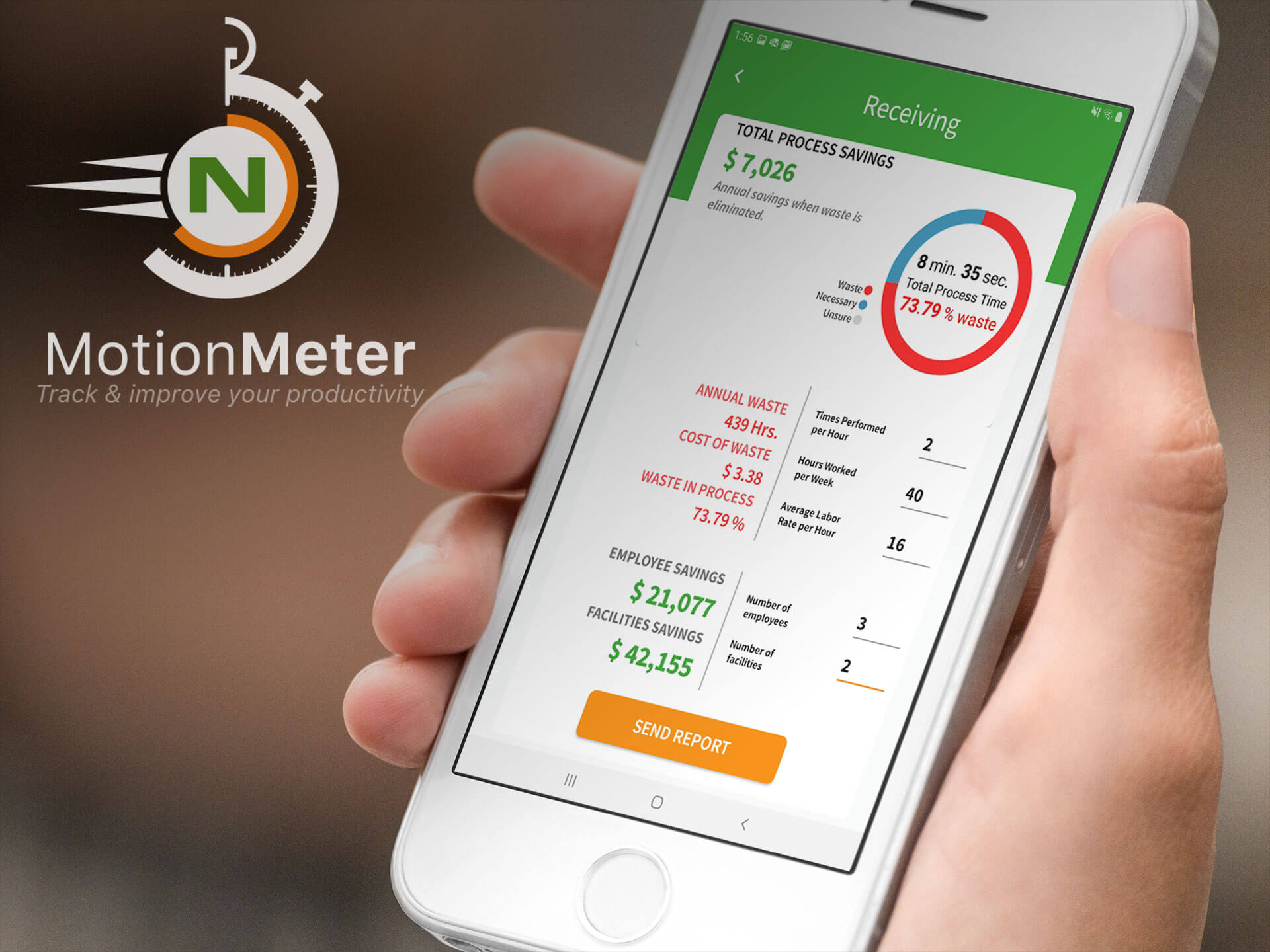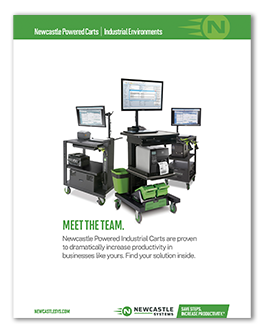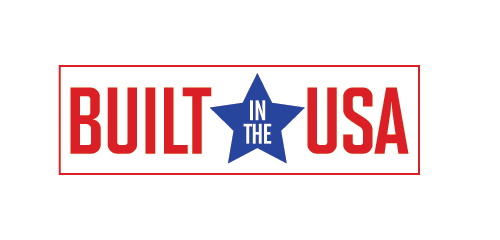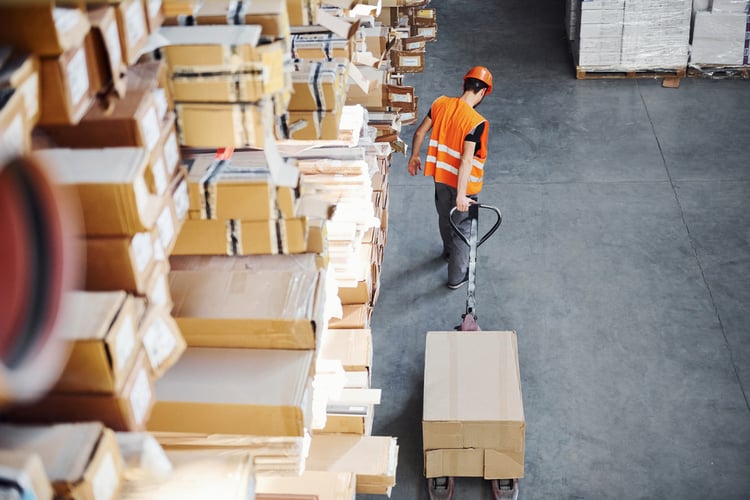
Warehouses are vital for modern logistics and supply chain management. Without warehouses, businesses would have nowhere to store their goods before shipping. Warehouses each have their own methods of operating, and there are many different roles to fill. Here is a list of various types of careers in the warehouse industry.
What Do Warehouse Workers Do?
To an outsider, warehousing can be a bit mysterious. They’re not places most people have visited or seen until they start working in one. But, because more and more consumers are relying on eCommerce, warehouses have become one of the backbones of the economy, so this particular workforce is vital.
Warehouses rely on a variety of positions to bring products into the facility, store them correctly, fulfill orders, take care of returns, and handle things like administrative tasks. These are fast-paced environments to work in, but they are also increasingly efficient thanks to technology.
Different Types of Careers in Warehousing
Most warehouse positions require that you have an attention to detail and be able to lift a certain amount of weight. But that will vary by the role. But no matter the job title, each team member plays a vital part in the productivity of the overall business. Here are some of the different careers available in warehousing and their duties.
1. Loader/Unloader
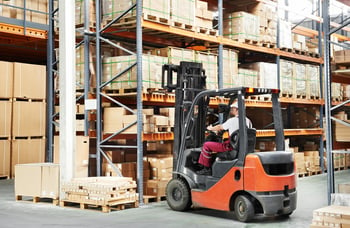 A loader/unloader is responsible for getting items onto and off of forklifts and delivery trucks. Most of these workers are trained in heavy equipment operation, such as forklifts and pallet jacks. They understand how to use this equipment safely to prevent injuries and damage to products.
A loader/unloader is responsible for getting items onto and off of forklifts and delivery trucks. Most of these workers are trained in heavy equipment operation, such as forklifts and pallet jacks. They understand how to use this equipment safely to prevent injuries and damage to products.
2. Shipping and Receiving Clerk
Shipping and receiving clerks are tasked with facilitating the receipt and shipment of products. They may not physically handle the goods coming in and out of the warehouse. Instead, they act as a liaison between the warehouse, shipper, and other business partners. Their main function is to ensure that products arrive in the warehouse when they are needed and leave at the proper time to achieve on-time delivery.
3. Materials Stocker
Someone hired to be a materials stocker in a warehouse will take inventory that comes into the warehouse and make sure it gets stored in the proper place. In the past, stockers would also be required to handle inventory control. But much of this has now been automated thanks to the use of RFID tags and automatic tag readers.
4. Picker
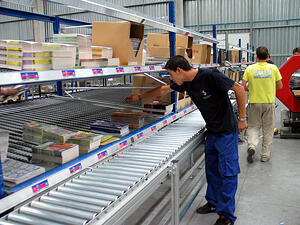 Order pickers are positions in high demand in warehouses. These workers are a vital part of the order fulfillment process. They receive a list of orders that require shipment and ‘pick” the items from the shelves to get them ready to send outside the warehouse. In some warehouses, order pickers will do a lot of walking. But many companies are implementing technology solutions like mobile workstations and automation tools to reduce the physical strain of the job and improve efficiency.
Order pickers are positions in high demand in warehouses. These workers are a vital part of the order fulfillment process. They receive a list of orders that require shipment and ‘pick” the items from the shelves to get them ready to send outside the warehouse. In some warehouses, order pickers will do a lot of walking. But many companies are implementing technology solutions like mobile workstations and automation tools to reduce the physical strain of the job and improve efficiency.
5. Packer
After the pickers pull the items from the shelves, a worker called a “packer” will package and label the products for shipping. This isn’t a job that requires a lot of experience, but it can be repetitive. Packers will need to have attention to detail to ensure the right items are sent to customers and to prevent damage in the process.
6. Inspector
Some warehouses hire inspectors to “inspect” products before they are packed for shipping or before they leave the warehouse. This is a type of quality control (QC) position that can help reduce errors. Inspector can also be used in the reverse logistic process to review products that come back into the warehouse as customer returns. This can help the business recoup money if some of those products can go directly back into inventory or be sold at a discount.
7. Materials Specialist
A materials specialist is a warehouse worker who makes sure various warehouse positions and systems are working efficiently. This includes shelving systems, forklifts, lighting, aisle markers, shipping and receiving areas, and more. Their duties include making sure these systems are optimized for job efficiency as well as safety. In many cases, this might involve recommending and implementing technology solutions like the use of mobile workstations or wireless headsets for workers.
8. Delivery Driver
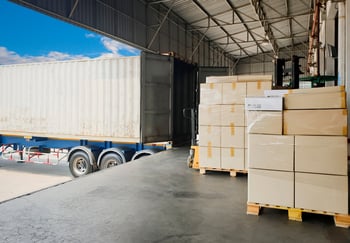 A delivery driver will bring products into the warehouse and take them away to fulfill orders. Sometimes a delivery driver will work for another company, but the warehouse might employ its own drivers, particularly if the company is moving products between locations or running a large operation. These drivers will have the necessary training and licensing for the job and will ensure that the documentation is correct with each delivery.
A delivery driver will bring products into the warehouse and take them away to fulfill orders. Sometimes a delivery driver will work for another company, but the warehouse might employ its own drivers, particularly if the company is moving products between locations or running a large operation. These drivers will have the necessary training and licensing for the job and will ensure that the documentation is correct with each delivery.
9. Warehouse Safety Supervisor
Warehouse accidents can be severe, with lasting consequences for workers and the business. The industry is also regulated by the Occupational Safety and Health Administration (OSHA), so someone needs to oversee workplace health and safety initiatives. That’s the job of the in-house warehouse safety supervisor. This person will train workers on various workplace safety rules as well as conduct ongoing safety inspections.
10. Warehouse Security
Warehouses can contain a lot of valuable products and equipment. Unfortunately, warehouse theft can be a serious issue that impacts business results. A warehouse security specialist oversees the security of the company’s assets to ensure that only authorized personnel are on the premises and those working in the warehouse understand the potential implications of crime. The security team might also run background checks on potential employees or business partners.
11. Warehouse Laborer
A general warehouse laborer might be asked to do any general tasks during their work day. These might include picking or packing goods, operating machinery, assisting with equipment maintenance, or the general janitorial services required throughout the building. This is an entry-level position but one that has the potential for advancement into almost any other area in the space, depending on the employee’s aptitude and interests.
12. Warehouse Manager
The warehouse manager is charged with leading the team that gets things done in the facility. Specifically, this role is responsible for overseeing shipping, receiving, inventory control, order fulfillment, security, and much more. They must implement operational policies and procedures, ensure the safety of employees, and motivate and discipline warehouse staff.
If you’re interested in working in a warehouse, you have many options. These are careers that can be challenging and rewarding. You may also get the opportunity to learn to use many workplace automation solutions, which warehouses and distribution centers are continuing to adopt to improve efficiency and accuracy.






